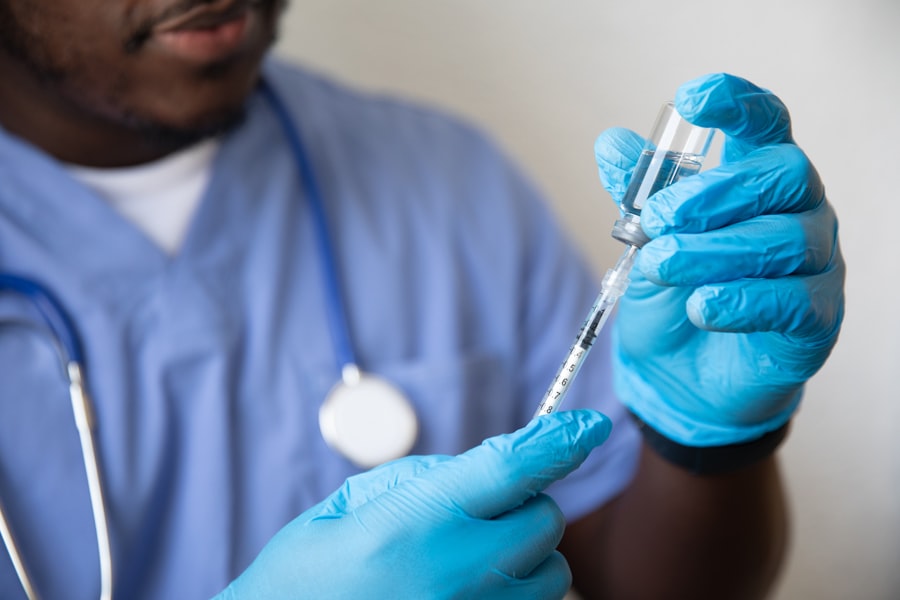Clinical trials are meticulously designed research studies that evaluate the safety and efficacy of new medical interventions, including drugs, devices, and treatment protocols. These trials are essential for advancing medical knowledge and improving patient care. They typically involve human participants who volunteer to take part in the research, allowing scientists and medical professionals to gather data on how a new treatment works in real-world scenarios.
Clinical trials are conducted in phases, each with specific objectives and methodologies, ranging from small-scale studies that assess safety to larger trials that determine effectiveness across diverse populations. The process of clinical trials is governed by strict regulatory frameworks to ensure participant safety and data integrity. Before a clinical trial can commence, it must receive approval from regulatory bodies such as the U.S.
Food and Drug Administration (FDA) or equivalent organizations in other countries. These agencies review the trial’s design, objectives, and potential risks to ensure that ethical standards are upheld. The results of clinical trials can lead to significant advancements in medical science, paving the way for new treatments that can improve or save lives.
Key Takeaways
- Clinical trials are research studies that test new medical treatments or interventions on volunteers.
- You can find clinical trials near you through online registries, hospitals, and research centers.
- Participating in clinical trials can provide access to new treatments and contribute to medical advancements.
- There are risks involved, including side effects and the possibility that the treatment may not be effective.
- Compensation varies, and understanding the process and expectations helps ensure a positive trial experience.
Finding Clinical Trials Near You
Locating clinical trials in your vicinity can be a straightforward process, thanks to various resources available online and through healthcare providers. Websites such as ClinicalTrials.gov serve as comprehensive databases where individuals can search for ongoing studies based on their location, medical condition, or the type of intervention being tested. This platform provides detailed information about each trial, including eligibility criteria, study phases, and contact information for the research team.
By entering specific keywords related to your health condition or geographical area, you can quickly identify relevant clinical trials that may be suitable for you. In addition to online resources, healthcare professionals can be invaluable in helping patients find clinical trials. Physicians often have access to information about ongoing studies and can provide recommendations based on their patients’ medical histories and needs.
Many hospitals and academic medical centers also have dedicated research departments that focus on clinical trials. These departments may host informational sessions or have staff members available to discuss potential participation in studies. Engaging with your healthcare provider can help you navigate the options available and ensure that you are considering trials that align with your health goals.
Benefits of Participating in Clinical Trials

Participating in clinical trials offers numerous advantages for individuals seeking new treatment options or contributing to medical research. One of the most significant benefits is access to cutting-edge therapies that may not yet be available to the general public. For patients with chronic or life-threatening conditions, clinical trials can provide opportunities to receive innovative treatments that could potentially improve their health outcomes when conventional therapies have failed.
This access can be particularly crucial for individuals facing limited options due to the severity of their illness. Moreover, participants in clinical trials often receive comprehensive medical care throughout the study period. This care typically includes regular monitoring by healthcare professionals, which can lead to early detection of any health issues and prompt intervention if necessary.
Additionally, many clinical trials cover the costs of treatment and related medical expenses, alleviating some financial burdens associated with healthcare. Beyond personal benefits, participating in clinical trials contributes to the broader scientific community by helping researchers gather valuable data that can lead to new insights and advancements in medicine.
Risks and Considerations
| Risk/Consideration | Description | Potential Impact | Mitigation Strategy |
|---|---|---|---|
| Market Volatility | Fluctuations in market prices affecting asset values | Loss of investment value, reduced returns | Diversify portfolio, use hedging techniques |
| Regulatory Changes | New laws or regulations impacting operations | Increased compliance costs, operational restrictions | Stay updated on regulations, engage legal counsel |
| Operational Risk | Failures in internal processes or systems | Business disruption, financial loss | Implement strong internal controls, regular audits |
| Cybersecurity Threats | Risk of data breaches or cyber attacks | Data loss, reputational damage | Use robust security protocols, employee training |
| Liquidity Risk | Inability to quickly convert assets to cash | Cash flow problems, inability to meet obligations | Maintain adequate cash reserves, diversify assets |
While there are many benefits to participating in clinical trials, it is essential to consider the potential risks involved. One primary concern is the uncertainty surrounding new treatments; they may not be effective or could cause unexpected side effects. Participants may experience adverse reactions that were not identified during earlier phases of testing.
It is crucial for individuals considering participation to have a thorough understanding of the trial’s purpose, procedures, and potential risks before enrolling. Informed consent is a critical component of clinical trials, ensuring that participants are fully aware of what they are agreeing to before joining a study. This process involves detailed discussions about the trial’s objectives, potential risks, and benefits, as well as any alternative treatment options available.
Participants should feel empowered to ask questions and seek clarification on any aspect of the trial that concerns them. Additionally, it is important for individuals to consider their personal circumstances, including their health status and support systems, before deciding to participate in a clinical trial.
How Much Money Can You Make?
Compensation for participating in clinical trials varies widely depending on several factors, including the type of study, its duration, and the level of commitment required from participants. Some clinical trials offer financial compensation as an incentive for participation, which can range from modest amounts to several thousand dollars for more intensive studies. For example, Phase I trials, which often involve healthy volunteers testing new drugs for the first time, may offer higher compensation due to the increased risks involved.
However, it is essential to approach compensation with realistic expectations. While some participants may receive payment for their time and involvement, others may not receive any financial incentives at all. Instead, they may benefit from free access to cutting-edge treatments or comprehensive medical care during the trial period.
Individuals should carefully review the compensation structure outlined in the trial’s consent form and consider whether the potential financial benefits align with their personal circumstances and motivations for participating.
What to Expect During a Clinical Trial

The experience of participating in a clinical trial can vary significantly depending on the study’s design and objectives. Generally, participants can expect a series of assessments and procedures designed to monitor their health and gather data on the treatment being tested. Upon enrollment, individuals typically undergo a screening process that includes medical evaluations and tests to determine their eligibility for the trial.
This phase ensures that participants meet specific criteria related to their health status and medical history. Once enrolled, participants will follow a predetermined schedule that may include regular visits to the research site for assessments such as blood tests, imaging studies, or questionnaires about their health and well-being. Depending on the trial’s design, participants may receive either the experimental treatment or a placebo (an inactive substance) without knowing which one they are receiving—a process known as blinding.
Throughout the trial, researchers will closely monitor participants for any side effects or changes in health status, ensuring that safety protocols are followed diligently.
How to Sign Up for Clinical Trials
Signing up for a clinical trial involves several steps that begin with identifying suitable studies based on your health condition and location. Once you find a trial of interest, you will need to contact the research team or site conducting the study for more information about eligibility criteria and enrollment procedures. This initial contact often involves a discussion about your medical history and current health status to determine if you qualify for participation.
If you meet the eligibility requirements, you will be invited to attend an informational session where you will learn more about the trial’s objectives, procedures, and potential risks and benefits. During this session, you will have the opportunity to ask questions and clarify any concerns you may have before making a decision. If you choose to proceed with enrollment, you will be required to sign an informed consent form that outlines all aspects of the trial and confirms your willingness to participate.
Tips for a Successful Clinical Trial Experience
To ensure a positive experience while participating in a clinical trial, it is essential to maintain open communication with the research team throughout the study period. Regularly discussing any concerns or side effects with healthcare professionals can help address issues promptly and ensure your safety during the trial. Additionally, keeping a journal of your experiences can be beneficial; documenting any changes in your health or side effects can provide valuable information for researchers while also helping you track your own well-being.
Another important tip is to stay informed about your rights as a participant in a clinical trial. Familiarize yourself with the informed consent process and understand that you have the right to withdraw from the study at any time without penalty. This knowledge empowers you to make decisions that prioritize your health and comfort throughout the research process.
Lastly, consider connecting with other participants through support groups or online forums; sharing experiences with others who are undergoing similar journeys can provide emotional support and enhance your overall experience in the clinical trial setting.




